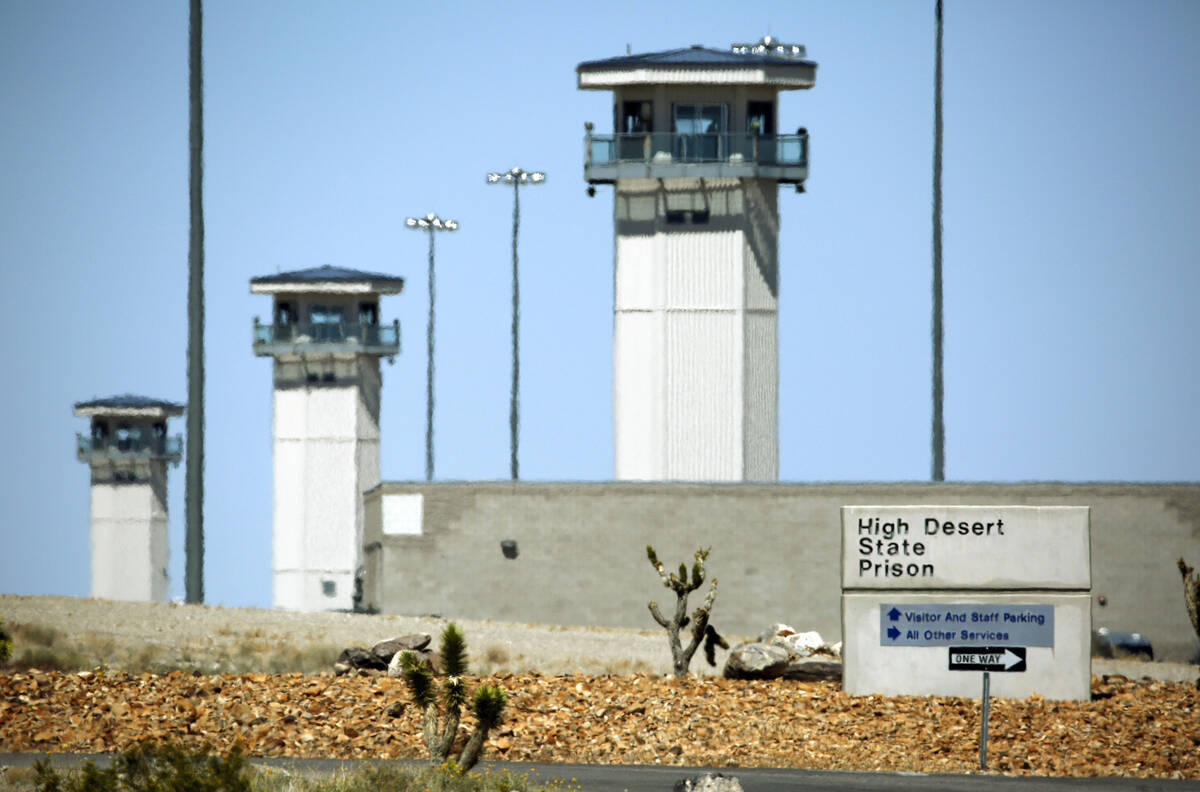Nearly 2K inmates transferred as Nevada swaps max-security prison
The Nevada Department of Corrections has transferred nearly 2,000 offenders between two institutions as the department swaps their custody designations, making a prison outside Las Vegas Nevada’s new maximum-security facility.
Ely State Prison, formerly the state’s maximum-security facility that housed the state’s death row inmates, has been downgraded to a medium-security facility, as High Desert State Prison takes its place.
Offenders who are sentenced to death will now be housed at High Desert, the Nevada Department of Corrections said in a release. But the execution chamber at Ely, which cost the state $860,000, will not be moved.
Relocating prisoners took several days, according to the release. The department said the operation was “highly sensitive,” putting offenders, officers and NDOC partners at risk.
“During transport, offenders are in a more vulnerable position and could become the target of rival gang members or other enemies, which also puts the escorts in danger,” the release said.
Prison officials said that the move was prompted by an “uptick in gang activity and violence, along with the remote nature of Ely State Prison.” A fight at Ely on July 30 that left three dead “factored into the decision,” but the department said it was not the impetus.
Violence inside prison walls
In the past two years, the Nevada Department of Corrections has issued news releases for the deaths of seven people at Ely. In April, an inmate serving time at the prison was stabbed to death, leaving his loved ones questioning the safety of the facility.
Moving the state’s highest-risk offenders to High Desert means they will be housed with more staff and closer to outside law-enforcement and medical services, prison officials said.
Metropolitan Police Department Sheriff Kevin McMahill said in an interview Tuesday that Metro supported the move and that in emergency situations, officers might lend support.
While the Nevada Department of Corrections said that “violence is always a risk among offenders,” there are “more resources for separating offenders” at High Desert than there were at Ely.
High Desert also has three fences as opposed to two, and the third is a “high-voltage electric fence,” the release said.
Staff at the new maximum-security facility are receiving training “to instill confidence and preparedness” when interacting with maximum-custody offenders. This includes training in the use of less lethal systems, the release said.
Inside a maximum-security prison, offenders are housed in single-occupancy cells, leaving their cells only for scheduled exercise periods, showers, visits, professional interviews, hearings and telephone calls. When offenders leave their cells, they are under direct supervision, according to the department.
The goal of the swap
There were 11 partner organizations who assisted in transferring the inmates, including Metro, the U.S. Air Force and the Clark County Fire Department.
“We were fortunate to work with a number of agencies that helped make this a seamless transition, with no injuries to staff or offenders. Of course, it would not have been possible without our own highly trained officers in both the north and the south who handled this difficult operation with the utmost professionalism and skill,” said James Dzurenda, director of the Department of Corrections.
“We believe this move will increase the efficiency of the Department and, most importantly, maintain a safer environment for our offenders, our staff and the community,” Dzurenda said in the release.
Gilbert Paliotta, an inmate at Ely who expressed concerns about safety inside the facility, previously told the Review-Journal: “As bad as I need to get away from this porta-potty, the ‘swapping’ of offenders isn’t a solution to a problem, but taking trash and putting it in your neighbors cans.” It is not known whether Paliotta was transferred.
Both Ely State Prison and High Desert State Prison remain on institutional lockdown, according to the department.
Contact Estelle Atkinson at eatkinson@reviewjournal.com. Follow @estellelilym on X and @estelleatkinsonreports on Instagram.

















